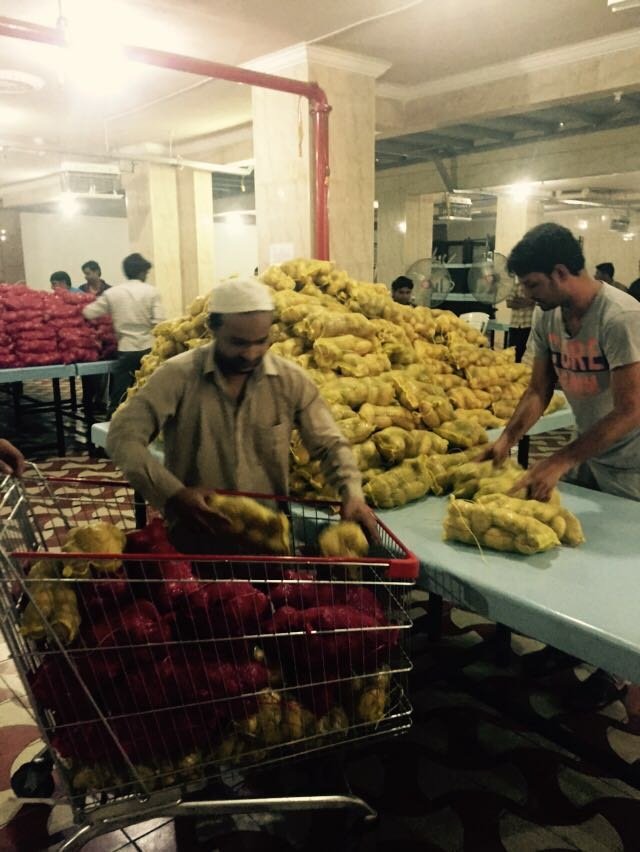The Imperative of Charity as a Religious Duty
"The whole concept of wealth is considered in Islam as a gift from God. God, who provided it to the person, made a portion of it for the poor, so the poor have a right over one’s wealth. Zakat reminds Muslims that everything they have belongs to God. People are given their wealth as a trust from God, and zakat is intended to free Muslims from the love of money. The money paid in zakat is not something God needs or receives. He is above any type of dependency. God, in His boundless mercy, promises rewards for helping those in need with one basic condition that zakat be paid in the name of God; one should not expect or demand any worldly gains from the beneficiaries nor aim at making one’s name as a philanthropist. The feelings of a beneficiary should not be hurt by making him feel inferior or reminding him of the assistance.""Money given as zakat can only be used for certain specific things. Islamic Law stipulates that alms are to be used to support the poor and the needy, to free slaves and debtors, as specifically mentioned in the Quran (9:60). Zakat, which developed fourteen hundred years ago, functions as a form of social security in a Muslim society."Islamreligion.com -- The Third Pillar of Islam: Charity
(India in Jeddah/Twitter) |
Saudi Arabia is arguably one of the wealthiest countries on the planet. It is also one of the most stringently religious nations within the Islamic community of nations. Cultural-religious rules and regulations mark this nation as one of fanatical scrupulousness; one-half of its population must cover itself completely in public, to be seen only as a black apparition, a billowing anonymous creature whose face, hands and feet must not be viewed by male eyes.
Symbols of any religion other than Islam are not permitted in the Kingdom of Saudi Arabia. Non-Muslims are strictly forbidden to enter the sacred cities of Mecca and Medina. Rules on banking must adhere scrupulously to Sharia law. Woman may not travel without the express permission of their husbands or fathers -- or sons. Woman are not permitted to drive, nor do they have the same rights of inheritance as their male counterparts.
Should a woman be raped it would most likely be interpreted as her 'fault' for tempting a helpless male. If she cannot present three male witnesses to the rape it never happened other than as consensual sex in which case she will be prosecuted and punished, not her attacker. With all this cultural baggage to tend to, little wonder, one supposes, that the issue of human rights and human dignity and compassion has slipped their notice.
Saudis find menial work below them; their status and dignity would be impaired by physical labour. So they turn to indentured labour done on their behalf, cheaply, with no legal employer-worker rights, by people from India or Bangladesh. The Kingdom of Saudi Arabia has never seen fit to relieve the stress and strain on countries like Jordan, Lebanon or Turkey of the millions of refugees streaming out of Syria.
But it has expended countless billions on funding and building mosques and madrasses reflecting the Wahhabist strain of Saudi-approved and -dedicated Islam all over the world, in Europe, South Asia, North Africa, and North America. And it helpfully provides the imams required to preach in those mosques and teach in those madrassas, Wahhabist-style. It is from Wahhabism that Sunni jihadist groups like al-Qaeda and Islamic State arose.
For the past several years Saudi Arabia has felt the strain of diminished oil prices; indeed it has itself been the fount of those diminished prices affecting oil production and sales the world over hoping to impoverish Iran. Finding their financial resources a trifle strained of late, tens of thousands of Indians working in the country have found themselves unemployed and penniless, unable to fund their return home to India and unable to acquire food for themselves.
 |
| Consulate General of India in Jeddah, Saudi Arabia, delivering food to starving Indian workers: Twitter |
They are, in other words, starving. India has now expressed its intention of evacuating its nationals from Saudi Arabia. After all, Indian citizens working in the Kingdom have for years sent back a substantial portion of their meager wages to their indigent families in India, enriching the country in the process. India provided food for its starving people, and will now airlift those people back to where they will live in poverty among their own where compassion and welfare however hard to come by will appear excessive in comparison to their plight in Saudi Arabia.
Labels: Charity, Crisis Management, India, Islamism, Political Realities, Saudi Arabia
0 Comments:
Post a Comment
<< Home